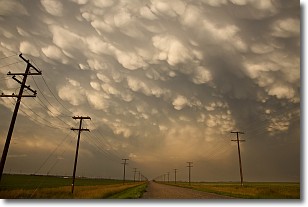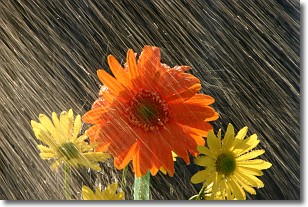Weather Alert in Illinois
Flood Watch issued April 1 at 1:10PM CDT until April 6 at 7:00AM CDT by NWS Paducah KY
AREAS AFFECTED: Jefferson; Wayne; Edwards; Wabash; Perry; Franklin; Hamilton; White; Jackson; Williamson; Saline; Gallatin; Union; Johnson; Pope; Hardin; Alexander; Pulaski; Massac; Gibson; Pike; Posey; Vanderburgh; Warrick; Spencer; Fulton; Hickman; Carlisle; Ballard; McCracken; Graves; Livingston; Marshall; Calloway; Crittenden; Lyon; Trigg; Caldwell; Union; Webster; Hopkins; Christian; Henderson; Daviess; McLean; Muhlenberg; Todd; Perry; Bollinger; Cape Girardeau; Wayne; Carter; Ripley; Butler; Stoddard; Scott; Mississippi; New Madrid
DESCRIPTION: Historically high forecast rainfall amounts will create a particularly dangerous situation with respect to the risk of flash flooding and flooding Wednesday through Sunday. * WHAT...Flooding caused by excessive rainfall continues to be possible. * WHERE...All of southeast Missouri, southern Illinois, southwest Indiana, and western Kentucky. * WHEN...From Wednesday afternoon through Sunday morning. * IMPACTS...Excessive runoff may result in flooding of rivers, creeks, streams, and other low-lying and flood-prone locations. Creeks and streams may rise out of their banks. Extensive street flooding and flooding of creeks and rivers are possible. * ADDITIONAL DETAILS... - Multiple rounds of locally heavy rainfall over several days will result in extreme forecast amounts of up to 1 foot of rain that will cause the risk of flash flooding and flooding to rise markedly and create a particularly dangerous flooding situation.
INSTRUCTION: Monitor later forecasts and be alert for Flash Flood and Flood Warnings. Be prepared to take action when flooding develops as this will be a particularly dangerous situation.
Want more detail? Get the Complete 7 Day and Night Detailed Forecast!
Current U.S. National Radar--Current
The Current National Weather Radar is shown below with a UTC Time (subtract 5 hours from UTC to get Eastern Time).

National Weather Forecast--Current
The Current National Weather Forecast and National Weather Map are shown below.

National Weather Forecast for Tomorrow
Tomorrow National Weather Forecast and Tomorrow National Weather Map are show below.

North America Water Vapor (Moisture)
This map shows recent moisture content over North America. Bright and colored areas show high moisture (ie, clouds); brown indicates very little moisture present; black indicates no moisture.

Weather Topic: What are Mammatus Clouds?
Home - Education - Cloud Types - Mammatus Clouds
 Next Topic: Nimbostratus Clouds
Next Topic: Nimbostratus Clouds
A mammatus cloud is a cloud with a unique feature which resembles
a web of pouches hanging along the base of the cloud.
In the United States, mammatus clouds tend to form in the warmer months, commonly
in the Midwest and eastern regions.
While they usually form at the bottom of a cumulonimbis cloud, they can also form
under altostratus, altocumulus, stratocumulus, and cirrus clouds. Mammatus clouds
warn that severe weather is close.
Next Topic: Nimbostratus Clouds
Weather Topic: What is Precipitation?
Home - Education - Precipitation - Precipitation
 Next Topic: Rain
Next Topic: Rain
Precipitation can refer to many different forms of water that
may fall from clouds. Precipitation occurs after a cloud has become saturated to
the point where its water particles are more dense than the air below the cloud.
In most cases, precipitation will reach the ground, but it is not uncommon for
precipitation to evaporate before it reaches the earth's surface.
When precipitation evaporates before it contacts the ground it is called Virga.
Graupel, hail, sleet, rain, drizzle, and snow are forms of precipitation, but fog
and mist are not considered precipitation because the water vapor which
constitutes them isn't dense enough to fall to the ground.
Next Topic: Rain
Current conditions powered by WeatherAPI.com




